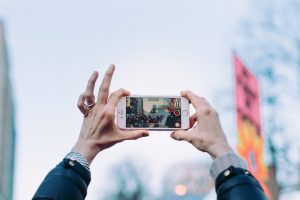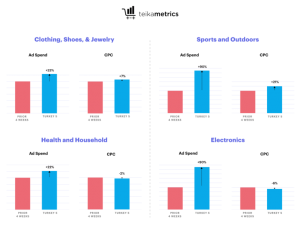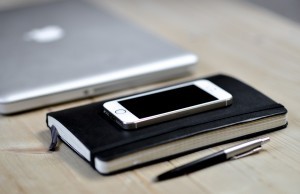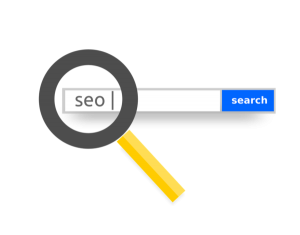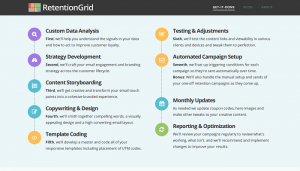We live distracted lives. The constant flow of information, noise, and unwanted entertainment has become so common we no longer remember what the words “quiet” and “still” really mean.
Breaking news bursts into our day every 15 minutes (shouldn’t we start calling it regular news?). Thanks to push notifications, we are destined to know when exactly when one of our friends replied to a comment on Facebook (critical information, obviously!). Banner ads are getting bigger, brighter, and harder to escape. Just like true love, ads will always find a way to catch your attention.
The cost of chronic distraction to our professional and personal lives is eye-opening and well-documented. An increasing number of people are starting to recognize the hidden cost of distractions, but only a small percentage of them manage to find a solution that works.
People young and old can adopt a productive lifestyle in less than 3 weeks. All it takes is having a good understanding of the nature of distraction, knowing your personal weak points, and taking certain steps (physically and mentally) to remove distractions from your life.
The Reasons for Increased Distractibility
If you decide to swim against the distraction tide, you first need to define where the majority of distractions are coming from. Fortunately, the biggest sources are the same for most people, so you won’t need to conduct thorough research on your own.
Studies show that social media, smartphones, noise, online advertising, and email top the list of biggest distractors. However, the inconvenient truth is that most of these interruptions (except noise) are neutral in nature. That is, it is our choice to turn them on, allowing them to become powerful sources of distraction.
Think about it:
- There is nothing inherently distracting about a smartphone if you switch it to silent or vibrate. Don’t enable every possible push notification, and keep it out of sight while at work.
- Email is not a destructive monster if you only check it twice per day, keep your letters organized, and don’t put your email address wherever possible—ending up with 100+ spammy letters daily.
- Social media is a great communication tool that turns into a time-killer if you can’t resist watching yet another panda video or reading another “philosophical” status update written by the friend of your friend.
Our behavior (lack of mindfulness, weak willpower, failure to establish priorities) is what keeps us from being productive. Technologies do make the situation worse, but only if we allow them to; the choice is still up to us.
The Critical Thing to Understand About Distraction
Attention is a limited resource.
Imagine attention as life points in a game. If you are granted 100 points of attention per day, once all of them are used, staying productive becomes nearly impossible.
So, you should invest your “attention points” wisely. Avoid doing something without a second thought. We may not be able to control what catches our attention, but we can think twice before letting a certain thing hold it.
Each time you find checking Instagram or scrolling Facebook irresistible, you waste your “attention points” on things that are hardly important. Instead of making a smart “investment” and staying focused on the task at hand, you throw your attention away on things that make you feel better for an instant but bring you no value in the long run.
Lifestyle Changes to Remove Distractions
Understanding that attention is limited is important, but it is our habits and behaviors that will change the game for real.
Cutting a long story short, you need to maximize the distance between you and your biggest sources of distraction. Translating this into action means:
- physical removal of potential distractors out of your sight;
- establishing a distraction-free morning routine;
- working on your mindset (read: learning to recognize the moment when distraction is about to happen and resisting it before it takes over).
Physical removal of distractions is exactly what it sounds like. Make a list of things you believe distract you the most. See if they can be moved out of your sight, and remove as many of them as possible. If it’s your smartphone that interferes with your ability to concentrate, put it in a locker or at least keep it with the screen facing down. If it is noise that stops you from being efficient at work, consider buying noise-canceling headphones, or find out if there is a way to change your workplace to a quieter one.
By establishing a distraction-free routine, I mean starting your day the right way. Instead of checking your email first thing in the morning, trying to multitask by preparing a breakfast, ironing your trousers, and chatting with your landlord regarding some maintenance issues in your rental, do yourself a favor and wake up 30 minutes earlier. Start your day with some exercise, a glass of water, and a quick shower. Write a to-do list and indicate your priorities. Meditate for a few minutes instead of liking posts on Instagram. Your morning lays the foundation for your whole day. Keep in mind not to let distractions become a part of your morning hours.
Working on mindset is the most challenging but also the most rewarding step out of the three. The right mindset is what helps some people resist distractions with much success in situations where others find it impossible to concentrate.
What’s the secret?
Distraction-proof people are mindful. They are fully present in the moment. They’ve managed to switch autopilot mode off. They live each minute to its fullest. As a result, their focus is always on what is happening right now. It takes them mere seconds to recognize they are distracted and get back to what’s important.
Tiny Changes—Big Difference
If you’re not ready for something as global as practicing mindfulness or keeping your phone in a locker while working (this one is huge and requires lots of willpower, we understand), start small.
Analyze your daily routine and see if some of your habits contribute to greater distractibility. Replace them with less invasive alternatives. Here are some ideas to help you kick-start your fight against distraction:
- Whenever possible, talk to people instead of chatting or sending emails.
- Read real books and newspaper instead of their online version.
- Replace multitasking with doing one thing at a time.
- Take regular breaks from work and spend them offline.
- Unplug from all devices at least 1 hour before going to bed.
- Turn off all unnecessary push notifications.
Don’t overwhelm yourself with all the options you can potentially try. Pick a few ideas that seem the most relevant to you and give them a try. If you can’t decide which ideas to try first, take your level of willpower into account. Start with those matching your current state of willpower and gradually work upwards. This way, not only will your life become increasingly mindful over time, but you will also boost your willpower as a bonus.
#DistractionDetox Preannouncement
The goal of this article is to help you break free from the negative distraction loop. It is by no means easy, but it is absolutely doable—especially if you team up with like-minded people and move toward a shared goal together. To save time and effort finding a community, we are launching our #DistractionDetox challenge. We will soon reveal the details, stay tuned!
Business & Finance Articles on Business 2 Community(61)

